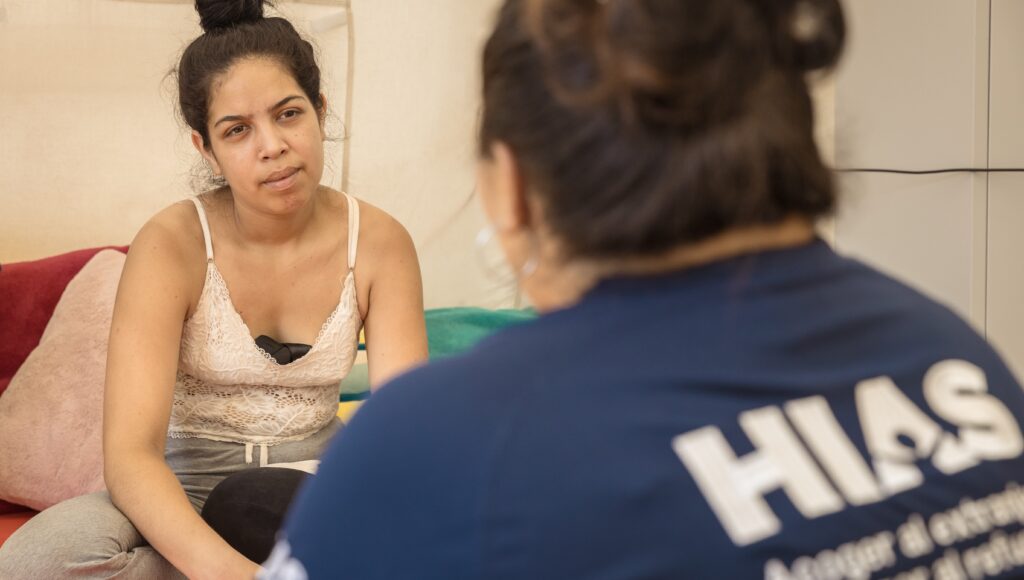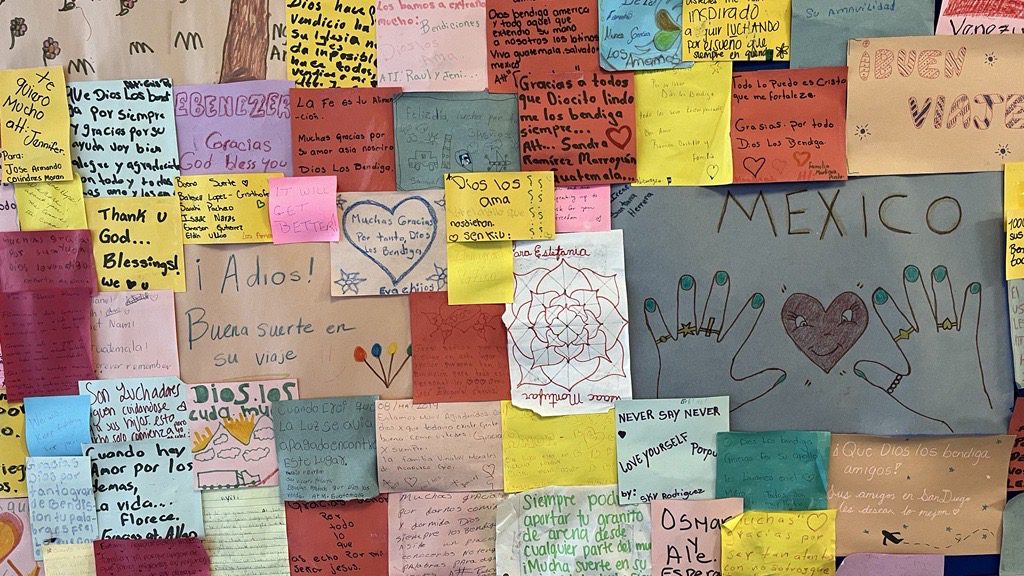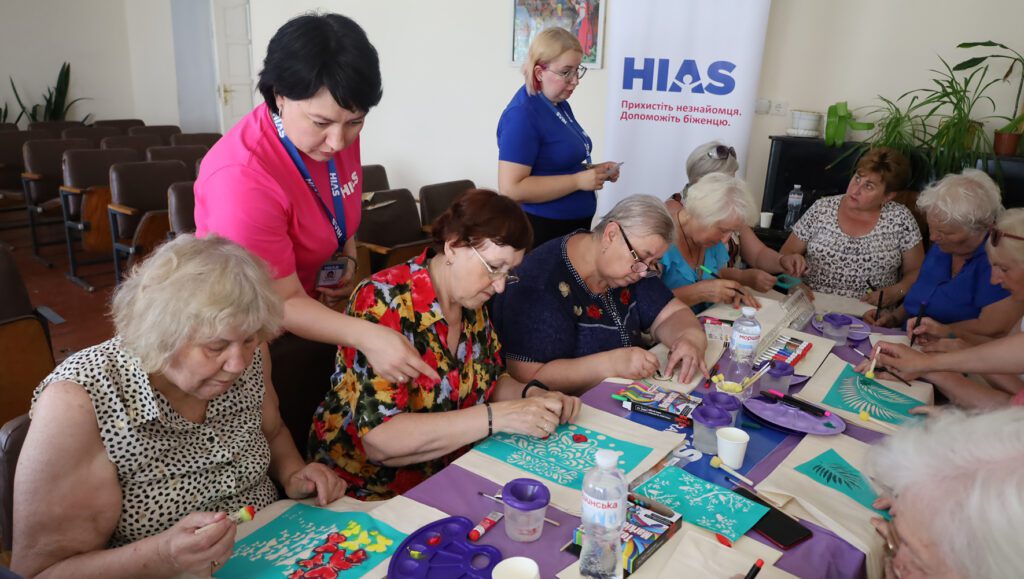PANAMA CITY, PANAMA AND BOGOTA, COLOMBIA — HIAS and Médecins du Monde (MdM), with financial support from the European Civil Protection and Humanitarian Aid Operations (ECHO), completed a multi-country response to address the urgent protection and health needs of displaced people crossing the perilous Darién Gap. This initiative reached 32,595 displaced people of whom more than half were women and girls, in Colombia, Panamá, and Costa Rica. The response occurred amid a rapidly changing geopolitical context that compounded the difficulties facing migrants.
“At the beginning of the project, the response was focused on people heading north and crossing through Darién. However, with the changes in migration policies, the vulnerability of people who are now returning has increased. Without ECHO funding, in a context where fewer organizations are present in the territory, we wouldn’t be able to provide essential assistance to these people, especially in terms of mental health, response to violence, and rights violations,” said Camilo Ramirez, Country Director for HIAS Colombia.
HIAS provided essential assistance such as prevention and response to violence against women and girls; mental health and psychosocial support (MHPSS); and protection services, such as referrals for emergency housing and food aid. MdM provided health care and mental health services at critical locations in Colombia and Panama.
For several years, the number of displaced people needing humanitarian aid in the Darién Gap increased exponentially, from an estimated 8,000 people making the dangerous journey in 2020, to more than 300,000 people in 2024. In the Darién Gap, refugees and migrants face severe risks due to a hostile geographic and health environment, compounded by violence — including sexual and domestic violence — theft and exploitation, and armed gangs.
“Thanks to the partnership with ECHO, and the project’s flexibility, we were able to deliver integrated services — protection, mental health assistance, and essential items — while addressing the diverse needs of women, men, adolescents, and the elderly. Beyond the numbers, this collaboration meant restoring dignity, reducing tensions within families, and helping people on the move feel seen and supported at one of the most vulnerable moments of their journey.” said Oliver Bush, Country Director for HIAS Panamá.
In the first few months of 2025, the number of people crossing the Darien Gap at first plummeted, but then gradually increased with a new trend: reverse migration. Now, thousands of displaced people are making the journey south. However, severe cuts to humanitarian aid have forced many organizations to leave the region, and HIAS and MdM are often the only organizations still operating in many areas.



